Home » Kratom News: Mac Haddow & the FDA
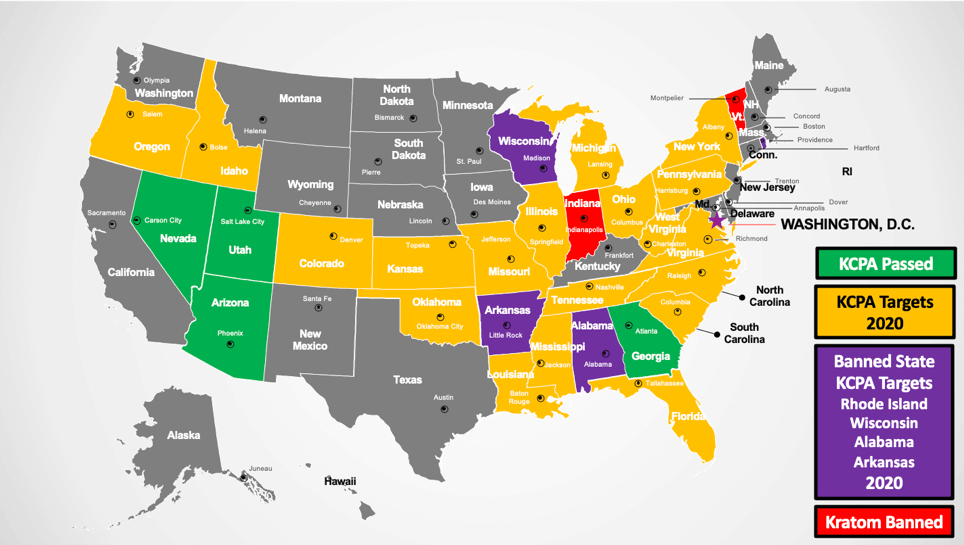
Kratom News: Mac Haddow & the FDA
- Anthony Dent, Founding Member
- 13 Comments
Mac Haddow is one of the leading advocates in the Kratom industry. Currently Mr. Haddow is traveling the country, promoting the Kratom Consumer Protection Act (KCPA) on a by-state basis. Mr. Haddow’s tireless and selfless efforts represent one of the leading movements to protect the rights of Kratom users and vendors in the United States.
Part #1 – Mac Haddow, Kratom, & The FDA
Adam (A): I’m glad we were able to reconnect, Mr. Haddow. How has everything been?
Mac Haddow: Well, it’s been a crazy time. It’s been a real mess with the state legislatures [and the current events of Coronavirus] and we’re waiting for the legislative bodies to reconvene. The loss of momentum has been frustrating.
A: I can imagine. Mr. Haddow, you have a long history of public service. I’d like to know more about how you got started, what led you to work with the American Kratom Association (AKA) and advocate for the Kratom Consumer Protection Act (KCPA).
Mac Haddow: I started my career in public policy, running Orrin Hatch’s bid for Utah’s U.S Senate seat in 1976. Shortly after that, I was elected to the Utah Legislature, which happened to overlap with my helping Ronald Reagan’s presidential campaign. After his victory, I was invited to go to Washington to serve as the Chief of Staff of the Department of Health and Human services. It was there that I got a lot of exposure to the FDA and the shenanigans they routinely run to achieve the expansion of their regulatory powers. Fast forward to 2016, when the FDA wanted to schedule Kratom, the American Kratom Association called me to see if I would help fight this scheduling recommendation.
A: That’s concerning, what was your mindset at the time?
Mac Haddow: At the time, I thought it was impossible to reverse this proposed recommendation given the DEA has never reversed their published scheduling recommendations – 82 instances had seen successful implementation. Until this one. The outcry from the Kratom consumers, respected scientists, 51 members of the U.S House of Representatives and 13 members of the U.S Senate forced the FDA to actually scrutinize their claims. Of course, this led to the withdrawal of the scheduling request. Then the DEA required the FDA to submit a full scientific analysis of their scheduling recommendation, and frankly, the FDA choked. They simply could not shoehorn their way into a scheduling recommendation with Kratom. My current work is to convince lawmakers that it is up to the states to regulate Kratom because the FDA refuses to do so.
A: Thanks for the rundown, that sounds like quite the journey. In regards to the outcry you mentioned, I’m amazed at the outpouring of support Kratom has received in resisting attempts to ban it. In every state, the support has been persistent.
Mac Haddow: The FDA has struck a nerve. They’re attacking people who believe in natural products. The FDA tried this in the 90’s with supplements and vitamins, trying to expand their regulatory power. They were trying to bully their way into a scheme which gave them immense power. But people are defending their right to make decisions about their own health. They actually shutdown the U.S. Capitol switchboard for the first time in history to combat the FDA’s attempts in 1994 to do the same thing they are trying to do today. The FDA has lied about the science and deliberately mischaracterized much of the data with the alleged harms they claim. It mirrors what they tried to do with the false claims about dangers of vitamins and dietary supplements. The bias runs deep for the FDA against natural products. They argued the supplements would be killing people in the streets, during the attacks made against natural products. After passage of the Dietary Supplement Health and Education Act (DSHEA), the FDA delayed implementing regulations for 10 years, all in hope they could clinically point to those adverse events or deaths as evidence they were right that dietary supplements were dangerous. But the FDA was wrong, and it took 10 long years for them to admit defeat on that policy. But this drove their anti-natural product bias. The FDA has been on a crusade to undermine the consumer protection provisions of DSHEA, and they have been successful in some ways.
A: So how do we fix this?
Mac Haddow: It’s time for Congress to bring the FDA back into their proper lane with appropriate restrictions on their regulatory powers. Kratom is a part of that. For example, the FDA refuses to recognize centuries of kratom commerce and routinely denies statutorily mandated new dietary ingredient applications for kratom vendors when they prove their products are not unsafe. The FDA has refused to approve any of the legitimate applications that have been proposed by vendors because of their bias. It is probably the most egregious overreach by a regulatory body in the history of our country. Congress is going to be forced to step in and fix the problem.
A: That is very useful information, because the average consumer probably has no idea why the media is so bent against Kratom. Would you say the main driver of the FDA’s agenda against Kratom is seeking more power?
Mac Haddow: The bias that the FDA exhibits against natural products may be sincere, but they are sincerely wrong. They don’t get to make these scheduling decisions as they have tried to make against kratom; Congress and the DEA does. The FDA will lie, bamboozle, and flood the information pipeline with propaganda that they know is untrue, all to support their agenda. In 2009, there were 9 deaths that occurred in a 12-month period in Sweden due to a kratom product called Krypton being adulterated with a highly dangerous toxic chemical, O-Desmethyltramadol. This was confirmed by a peer-reviewed and published scientific analysis. But the FDA has held onto this ever since, refusing to acknowledge the data. They’ve been increasing the death count they attribute to kratom ever since with flimsy and shoddy methodology. Every single death was attributed to something other than Kratom. In all the data, there is no credible medical evidence that Kratom has caused any deaths. Even in the one death the FDA claims is a “kratom-only” death, their army of investigators has had two years to produce the proof with medical or autopsy records, but have failed to do so. The truth is Kratom has a well-documented safety profile that should encourage use, not ban it.
A: In other words, you believe that they are cherry-picking evidence.
Mac Haddow: No question about it. It shows how inept they really are. In fact, they found out that one death involved two gunshot wounds to the chest, and the FDA didn’t want to disclose that – they wanted to continue to attribute it to Kratom just because the decedent had Kratom detected in his bloodstream. When an agency will stretch to that point, it shows they are not serious about science being the basis for their policy. It violates statutes requiring they disseminate accurate information in regards to public policy. Yet the FDA doesn’t seem to care. Some people have suggested the FDA has a financial interest and that Big Pharma’s lobbyists are leaning on them. There’s no question PhRMA has lots of lobbyists, and a financial interest. But the more sinister reality is that the FDA is receiving significant financial resources from Big Pharma following the passage of the Prescription Drug User Fee Act (PDUFA). The FDA doesn’t receive any revenue from natural products [like Kratom], so their incentives are perversely misaligned.
A: It’s hard to believe that a government entity could be so out of touch with reality.
Mac Haddow: They’ve been this way for decades, with all natural and dietary supplements. Congress is going to have to step in.
A: It sounds like they will. Changing gears, I want to take a look at your nationwide tour of the cities and states you’ve been to, and how progress has been going on enacting Kratom Consumer Protection Laws.
Part #2 – Recent Legislation Hearings

Source: American Kratom Association
We asked Mac to give an update on states he has been to in 2020:
Maryland: Began as a ban until age limit was imposed. Got through the Senate Judiciary Committee and got hung up in the House because of COVID-19. The ban was defeated, and the ban’s sponsor was so impressed with our presentation he actually asked for some Kratom to help with his arthritis.
Missouri: Outstanding result. The KCPA is preferred and we are very optimistic.
Ohio: It’s disturbing to see, but the FDA has ramped up their subterfuge. They want to enact a de-facto ban, and we are hoping the House will move quickly. We’ve had some terrific progress here, however. I think things will go well, ultimately.
Oregon: Got through the Senate with unanimous support. We did well in committee until a partisan fight shut down the legislature. The delay cost us as the Republicans walked out over a completely unrelated dispute on legislation, denying the Democrats a quorum to do any business. Now we are trying to work with the Governor over the summer. In the new session, I think we’ll have good and rapid success.
San Diego: Some very compelling and powerful testimony from veterans seemed to resonate. We heard talk of lives saved. The Board of Supervisors agreed to amend the ordinance to remove Kratom as a public nuisance, and we’re very hopeful that they’ll only institute an age restriction. We think the ban in San Diego City will also be lifted. Very optimistic.
West Virginia: A ban came out of the blue in West Virginia. We were able to defeat it in the Senate. The bill was so unfair that it took an unusual parliamentary maneuver to defeat it. We have an open invitation to return for a presentation promoting the KCPA.
Rhode Island: We had a great hearing, despite opposition from the Department of Public Health. But we are working with them, as they used inaccurate and outdated information. We have shown no Kratom addiction liability in ‘gold standard’ studies, and we are optimistic we will be successful in overturning the ban.
Illinois: The KCPA is in both the Senate and the House, and we’ve had good discussions with the ban sponsor; we think he will come our way. I think we’ll have good success when they reconvene.
Oklahoma: Unanimous support in the House, looking good here.
Mississippi: We’ve defeated three ban bills and replaced it with the KCPA in the Senate Drug Policy Committee. We got slowed down by some who have demonized kratom, but we are going to win this next year. We stopped all three of the bans.
South Dakota and Hawaii: A ban was stopped from being implemented and we are looking forward to more discussions.
Adam: This is all fantastic progress, Mac. Keep up the good work. I love the optimistic tone.
Mac Haddow: We are very optimistic and will continue to work hard.
A: Now, what issues could you see coming up for the American Kratom Association in their mission? What could stop the positive momentum?
Mac Haddow: The Coronavirus has slowed the legislative sessions, but we are going to be active starting back up when they reconvene. It’s also, understandably, put a crimp on our fundraising in the states. We are going to have to ask people to stretch to help us. It takes a lot of money, but we are getting great results. This is a critical fight and we don’t want to lose momentum.
Part #3 – Joining the Kratom Community
A: So how can the average Kratom consumer help?
Mac Haddow: A contribution to AKA would be crucial. When the appeals come and we need consumers to participate in government hearings, we need help. The voices of the kratom community have made a huge difference thus far. It’s influenced elected officials and it bolsters our argument, and our credibility has been significantly enhanced. The AKA is launching a program to expand the consumer advocate presence. We will be asking vendors to sign their customers up to join the consumer advocacy community. The more members the better. We want to replicate the surge we saw in 2016 [against the DEA proposed scheduling], like with the 140,000 signatures on the petition to the White House. And I don’t just mean kratom consumers. I mean their families and their communities. Because when they see the good that Kratom has done for so many, they’ll be able to rally behind this movement as well.
A: Absolutely. I’ve seen so many positives and have heard so many stories about Kratom changing lives. We need to mobilize these powerful stories.
Mac Haddow: Absolutely. So we need everyone to join in on the community and work on this together.
A: This has been fascinating, Mr. Haddow, and I so appreciate your willingness to talk with me here today. To finish up, I’d like to know what you’d say to someone who may be hesitant to try or support Kratom due to the federal efforts to demonize it? What would you say to them?
Mac Haddow: It’s a lot of people, unfortunately. The FDA has flooded propaganda and has created concern in users who could have otherwise benefited from Kratom use. But when you look at the key principle of our healthcare system, harm reduction, you begin to see the potential of Kratom. When you even see the deaths associated with over-the-counter products and opiates, you can see the safety profile is so much better with Kratom. As the studies roll out, we find out Kratom is even more safe than we initially thought. For an example, a recent John Hopkins study found that the overdose risks for opiates is 1,000 greater than kratom. For all the people who are suffering or in pain, they should try Kratom. They should have that choice for themselves.
A: I’m right there with you Mr. Haddow. I’m so appreciative that you took the time to help me spread the word today. We’re looking to help you in this fight.
Mac Haddow: That’s terrific, Adam. Thanks for having me. Take care.
Let’s Keep Fighting
We thank Mr. Haddow for his efforts to protect Kratom and its users and applaud his persistence and courage in resisting misinformation. Mr. Haddow continues his work for the AKA to this day, and we urge Kratom users to do whatever they can to support Mr. Haddow and those like him in their mission to protect the plant that has helped so many people.
You can donate to the AKA and join the fight here:
Featured Products
-
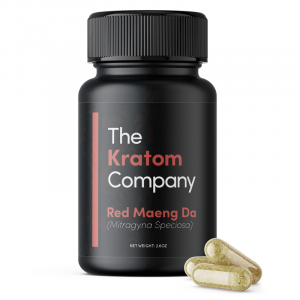 From $24.00Select options This product has multiple variants. The options may be chosen on the product page
From $24.00Select options This product has multiple variants. The options may be chosen on the product page -
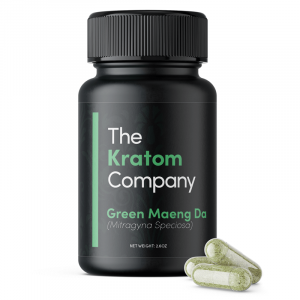 From $24.00Select options This product has multiple variants. The options may be chosen on the product page
From $24.00Select options This product has multiple variants. The options may be chosen on the product page -
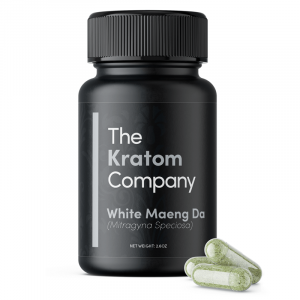 From $24.00Select options This product has multiple variants. The options may be chosen on the product page
From $24.00Select options This product has multiple variants. The options may be chosen on the product page
Explore More Posts
Product Search
Featured Products
-
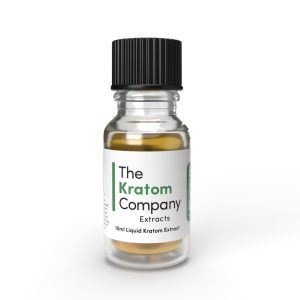 Pure Kratom Liquid Extract
Rated 4.72 out of 5From $20.00
Pure Kratom Liquid Extract
Rated 4.72 out of 5From $20.00 -
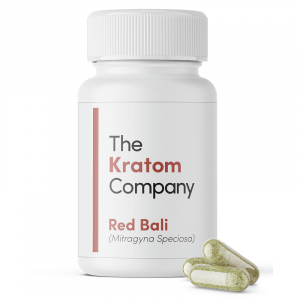 Red Vein Bali Kratom Capsules
Rated 4.70 out of 5From $24.00
Red Vein Bali Kratom Capsules
Rated 4.70 out of 5From $24.00 -
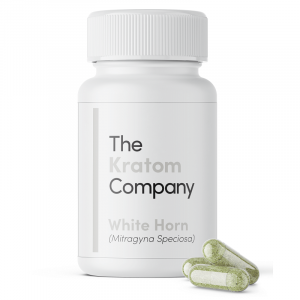 White Horn Kratom Capsules
Rated 4.88 out of 5From $24.00
White Horn Kratom Capsules
Rated 4.88 out of 5From $24.00
Follow Us
Strains
Blogs
NEWSLETTER
Sign up for our newsletter!

These statements and products presented on this website have not been evaluated by the Food and Drug Administration FDA. The products mentioned on this website are not intended to diagnose, prevent, treat or cure any diseases or health conditions. Therefore any information on this website is presented solely as the opinions of their respective authors who do not claim in any way shape or form to be medical professionals providing medical advice. The KRTM Company and its owners or employees cannot be held responsible for, and will not be liable for the inaccuracy or application of any information whatsoever herein provided. By purchasing our products you agree that you are aware and in compliance with your local county, state, or federal regulations. Must be 21 years or older to purchase Kratom. The US FDA has not approved kratom as a dietary supplement. We do not ship to the following states, cities and counties in the US where Kratom is banned: Alabama, Arkansas, Indiana, Rhode Island, Vermont, Wisconsin, Sarasota County, FL, Union County, MS, Denver, CO, San Diego, CA, and Jerseyville, IL.






This Post Has 13 Comments
Mac should read this blog himself! Very well-rounded, and I love the things you choose to cover as a kratom company. Great product too!
This is a stellar interview! If every site had one of these we would be taking even more steps toward regulation. Good to have this company as a part of the community!!
Brilliant interview by both parties.
this guy knows his stuff. you should do more campaigning w him
regulation would go a long way in this industry
love the interviews. keep going
Hope to see this guy continue! knows what he is doing!!!
10/10
I still can’t believe the FDA will stand there and court and speak of banning a plant they admittedly have no knowledge on. Ignorance is not bliss when we’re talking about legal action that would affect millions. Let the science speak for itself!
Love it. Keep it up, Mr. Mac!
Well done, Mr. Mac!
This is the kind of thing everyone learning about Kratom needs to read. Unadulterated facts regarding the safety of Kratom and the FDA’s shortsighted efforts to ban rather than regulate – simply drawing attention to their bias.
Thank you Mr. Haddow! You are fighting for us all.